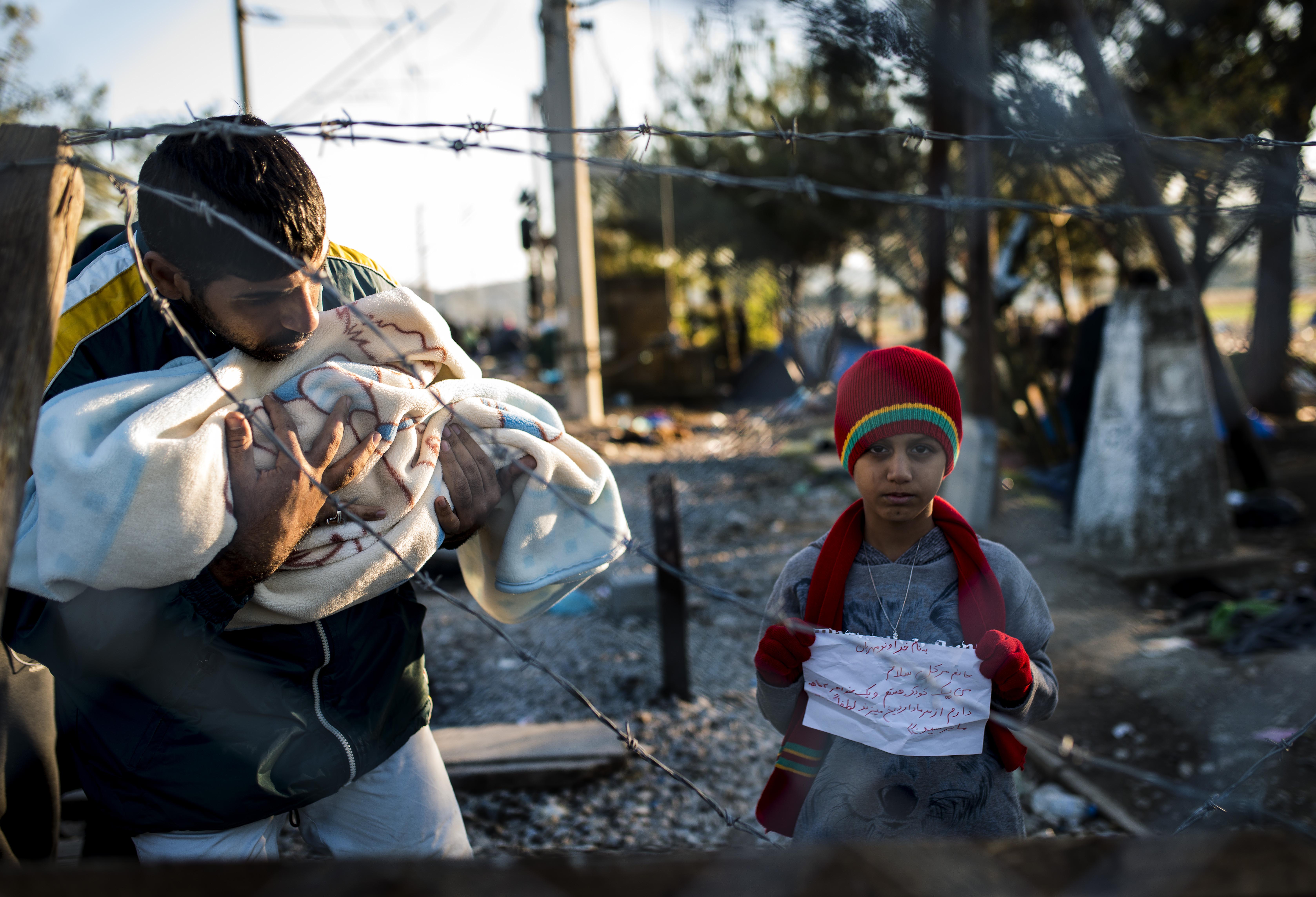Refugee emergency
After the tragic events in Paris the refugees’ selection is underway throughout the “Balkan route” (access granted only to Syrians, Afghans and Iraqis). Some 2500 are blocked in Idomeni’s camp between Greece and Macedonia raising tensions and anger over extended stays. Caritas hands out blankets, thermal sweaters, food and sanitary kits, and prepares to face the risk of a total lockdown of the borders

As the first blasts of icy wind announce the onset of winter in the valley separating the border between Greece and Macedonia, the refugees, during the night, make bonfires with everything they find – dead branches or trash – to try to warm up. The weak and sick are being treated by the Red Cross for hypothermia. The town of Idomeni was in the news for the epic marches of desperate people crossing the “Balkan route”, streaming into the heart of Europe from Turkey. Over 700,000 have arrived via this route to date. Most of them managed to head towards North-European countries. Those arriving now are the poorest and most desperate ones, those with very little money to pay trafficking at sea: with heavy sea it’s more dangerous, and therefore it costs less. They are also the most unfortunate, because they pay the highest price of closed borders following the attacks in Paris. About 2,000 / 2,500 of them are currently stationed in the camp of Idomeni, 600 km from Athens, divided into five large tents made available by the United Nations High Commissioner for Refugees and the International Organisation for Migration, plus a smaller tent for the children and a couple for the storage and distribution of aids. The refugees arrive here by bus or car from Athens, then they cover on foot the last kilometer that separates them from the Macedonian border, which is now building a high fence. Before November 13, they would stop in the camp for a very short time. Now the police only allows the passage of Syrians, Afghans and Iraqis – nationalities who stand chances of being granted asylum – while all the others stay behind: they are those fleeing from Pakistan, Bangladesh, from African countries, the so-called “economic migrants. There are two incumbent threats: the onset of winter and the rising tensions, anger and frustration. For days, about 200 people have been protesting holding signs: “kill us or help us,” “We are not terrorists”; eleven have even sewn their lips together in protest; scuffles have broken out with the police. Sunday some of them tried to break through the fence, worsened by stone-throwing against the Macedonian army and the Greek police. In the camp, if all goes well, they will eat a soup or a plate of hot rice once a day, distributed by humanitarian organizations. Three times a week Caritas brings blankets, thermal sweaters, shoes, food, and health kits. “The situation has grown worse – said Rino Pistone, in Idomeni, from Caritas Hellas – and it risks intensifying as their stay in the camps is prolonged, along with the hardships. Those with money try to cross a different route, those who without money are paying the price of closed borders.” Meanwhile, European leaders have decided to offer 3 billion Euros to Turkey to host 2.2 million Syrian refugees. The message is clear: do not allow any more to embark towards Europe.
With closed borders, 30/40% will have to return to Greece. “Migrant inflow has dropped over the last few days – confirmed from Athens Danilo Feliciangeli, Caritas Italy worker – as the Turkish coast guard has stepped up controls. “In the centre of the Greek capital two tent camps have been set up by the government hosting hundreds of refugees; they used to stop for two / three days. Now the risk of an extended stay is concrete. Despite the serious impact on the Greek population, seriously tried by the crisis, the Greek people responded with generous acts of solidarity.
The refugees “are worried that they arrived too late, and they now risk being blocked here”, Feliciangeli pointed out.
“Many of them fled in a hurry the night of the attacks, dreading the repercussions. We fear that borders will be closed down to everyone very soon. If it should happen, 30/40% might be sent back to Greece.” Under the EU draft deal – yet to be approved, with high chances of failure – all incoming migrants registered in hotspots will have to return to the first Country of arrival, with high risks of a boomerang effect on the Countries north of the Mediterranean sea.
790 thousand euro from CEI for the refugee-crisis. To face the ongoing emergency, Caritas received a 790 thousand grant from the Italian Bishops’ Conference (CEI), 300 thousand of which for refugees blocked on the borders of Greece, Macedonia and Serbia, and the rest of the sum for reception centres, in response to the appeal of the Pope. Caritas Italy supports Caritas Hellas, which is increasing accommodation for migrants in view of the winter: 200 beds in hotels or in other reception structures in Athens; 200 in the island of Lesbos, especially for families with children, old people or vulnerable persons. They have given hospitality to 200 since May. “If the borders remain open they will stay a few days, otherwise we will have to plan out longer stays,” Feliciangeli said: “We will soon be opening a day centre for information, hot showers, clothing along with language and vocational training courses.”